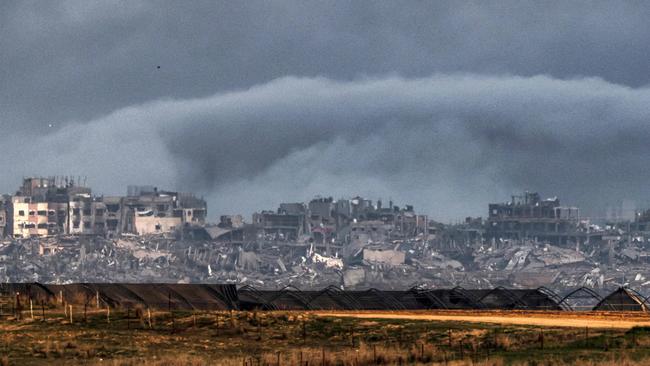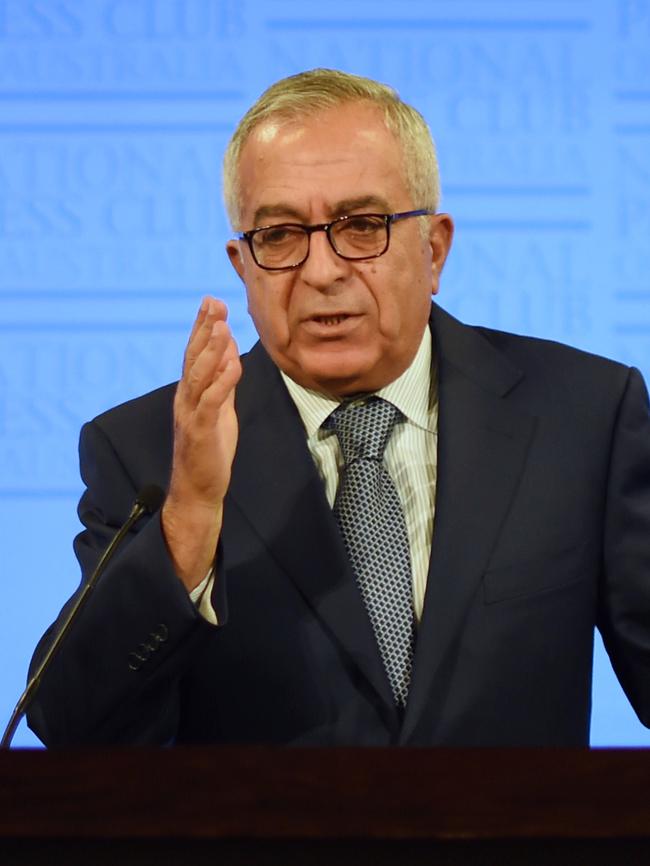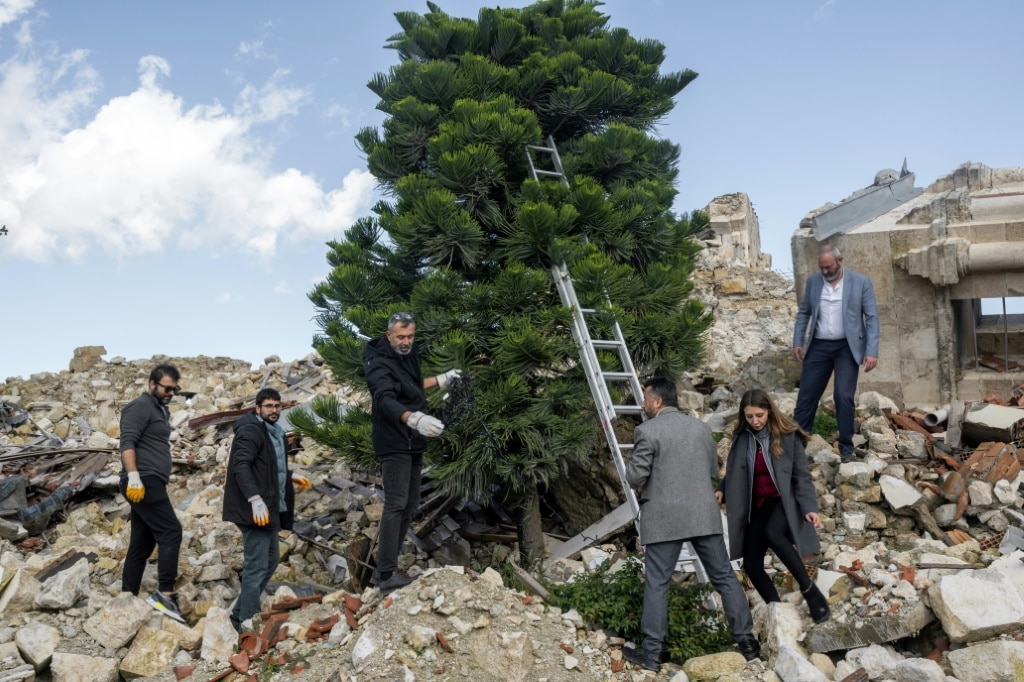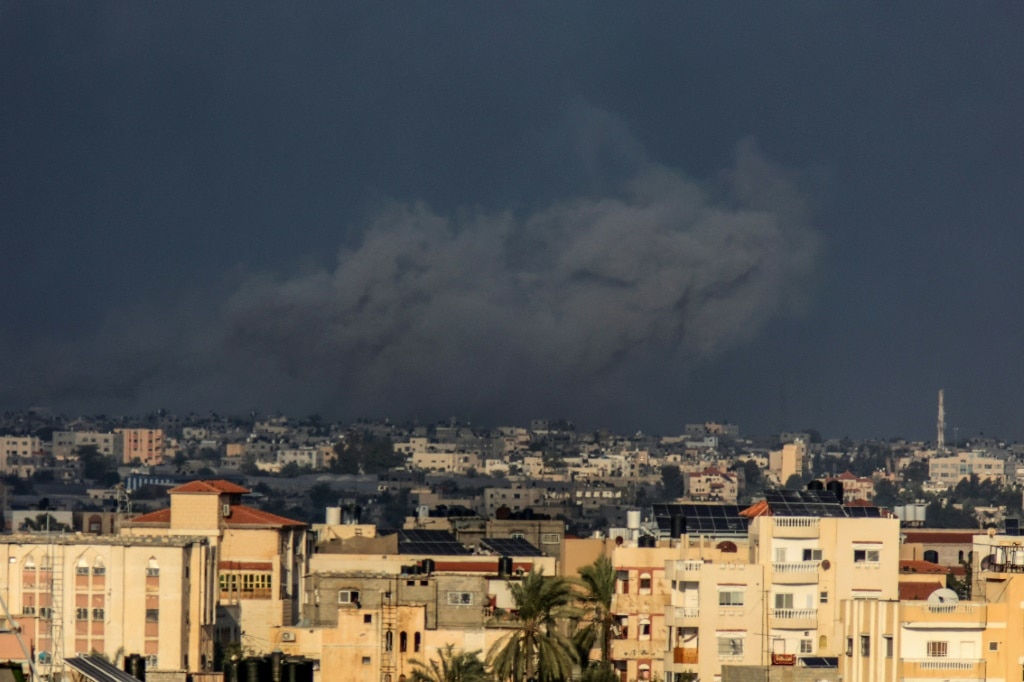Gaza’s fraught future needs a UN-led Marshall Plan

Today, as we witness the daily scenes of devastation from Gaza, we’re reminded of that grim vision. So, what should be Gaza’s future in the wake of today’s conflict? It is not a trivial question. In September, less than a month before Hamas initiated its brutal attack on Israel, the UN Conference on Trade and Development issued a report highlighting Gaza’s economic plight.
The UNCTAD report revealed that the prolonged blockade of Gaza had left 80 per cent of the population of just more than two million dependent on international aid.
By mid-2022, 65 per cent of Gazans faced food insecurity and the poverty rate stood at 65 per cent. Much of this dependency resulted from Hamas, designated by Australia as a terror group, diverting huge resources and manpower to its underground military network.
Today’s conflict has exacerbated the situation.
To provide Gazans with hope and a secure future, we must establish a credible, multi-year strategy that aligns with security for Israel.
Under the UN charter, there’s a viable option: direct administration of a state or territory by the UN or member states acting on its behalf. This worked in 1991 for Cambodia, where Australia played a vital role.
In Iraq in 2003, the UN Security Council authorised the US and Britain to “promote the welfare of the Iraqi people through effective administration of the territory”.
Direct administration can work in tandem with a UN-appointed special administrator, offering a credible pathway in Gaza.

The key to success lies in the nexus between direct administration and a well-structured plan for an economically and socially viable Gaza. This plan envisions Gaza’s integration with the Palestinian Authority and the West Bank. It aims to empower Gazans to take control of essential services, including civil administration, healthcare and infrastructure. Crucial to this is the transfer of knowledge and skills, provided by the direct administration powers in collaboration with the UN special representative.
This is a generational plan – a Marshall Plan for the Palestinians, ideally sponsored by the UN, with the involvement of countries committed to a viable Palestine. No country pursuing ideological solutions, indifferent or hostile to true peace, should undermine this plan.
Success won’t come quickly; this will require a minimum of 10 years, resources and resourcefulness. Various neighbours – including Egypt, Saudi Arabia and Turkey – could take the lead, provided they possess the expertise for knowledge transfer in key areas.
The office of the UN special representative for Gaza, in co-ordination with nominated countries, would be responsible for developing and implementing this 10-year plan. Experienced leaders such as Salam Fayyad, the former prime minister of the Palestinian Authority, could play pivotal roles.

This challenge is immense but it holds a vital ingredient – hope, for which Gaza has long yearned.
In a world where adversity often seems insurmountable, we have seen determination, innovation and international collaboration transform despair into a brighter, more prosperous reality.
For example, Rwanda emerged from a devastating civil conflict in 1994 in which 800,000 people were killed, to rebuild its society and economy.
Gaza’s future may appear uncertain, but by embracing determination, innovation and international collaboration we can pave the way for a prosperous and peaceful tomorrow.
Ron Finkel AM is the Melbourne-based founder and chair of Rozana International and Dr Jamal Rifi AM is a Sydney GP and a director of Rozana International, an organisation committed to building bridges to better understanding between Israelis and Palestinians through health.






The Day After is a television movie from 1983 that portrays the apocalyptic aftermath of a nuclear conflict between the US and the Soviet Union. It showcases the dire consequences of war, with survivors amid rubble and healthcare workers trying to work by candlelight.